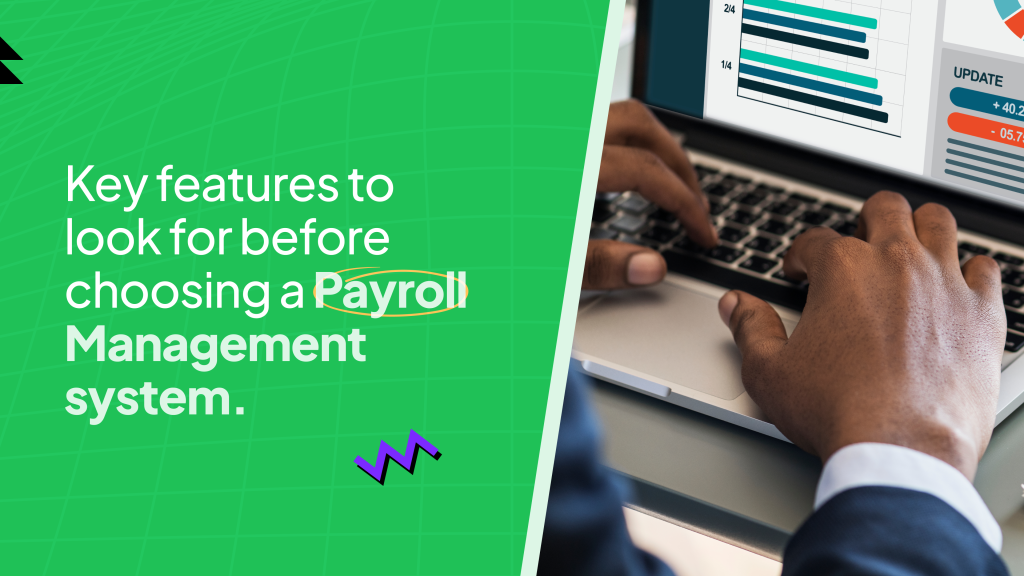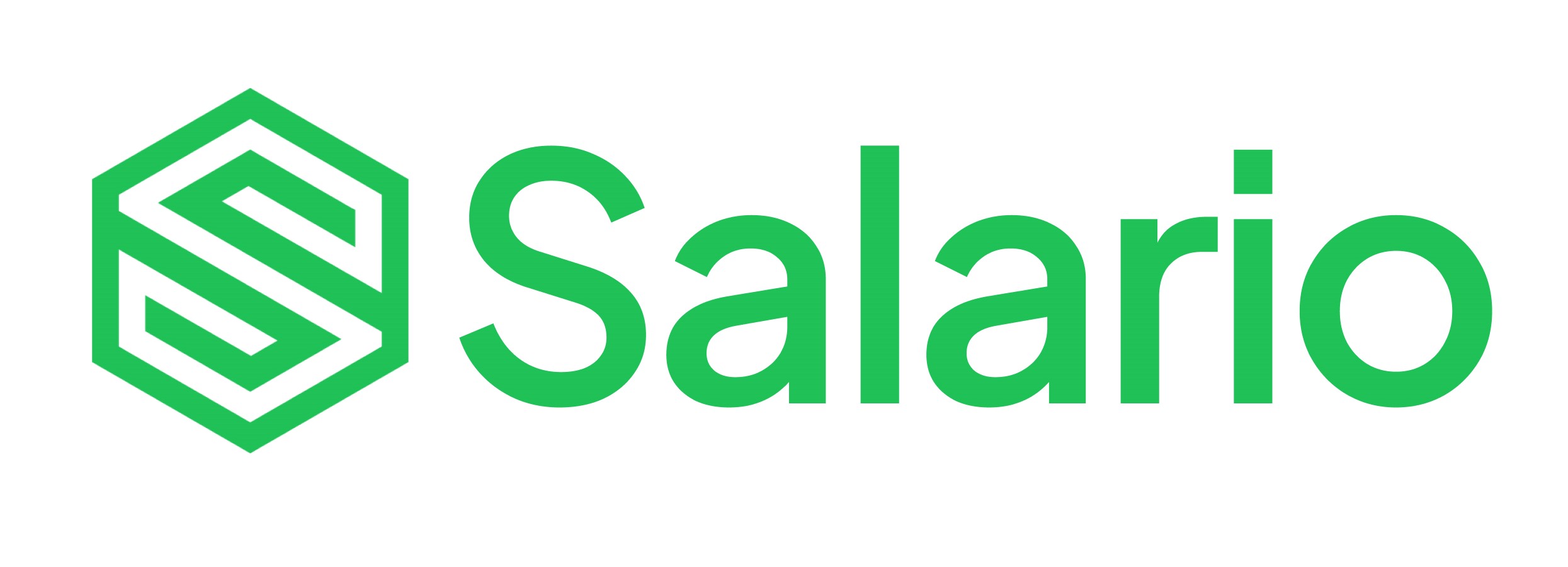
Cynthia was tasked with sorting payroll for her company, her first task as the new HR manager. She jumped head first into the task, beginning her search on Google. She ran a search for 7 top payroll options in Nigeria, and several results popped up. Before she knew it, she was down a rabbit hole, scanning through many web pages, searching for what was not lost. The only problem she had was that she was not exactly sure what would work well for the company.
Choosing a payroll management system is crucial for maintaining accuracy and compliance in your business. But with numerous options available, how do you determine the best fit? Below are the most critical features to look out for, ensuring that your payroll runs smoothly and your business complies with the relevant regulations.
1. Ease of Use
While many payroll options might celebrate how technical their platform is, the first hallmark of a good payroll management system is its ease of use. A payroll system’s ease of use directly impacts its efficiency. Whether your business is large or small, you need an intuitive system for all users, from the payroll department to HR managers. A complex system can waste significant time in training, fixing mistakes, and navigating through endless menus.
- Why It Matters: An easy-to-use payroll system minimizes the learning curve, ensuring your staff can handle payroll duties efficiently without constant technical support. It saves time and reduces the risk of input errors, making the payroll process smoother.
- Look for: Systems with drag-and-drop features, clear menu navigation, and well-designed dashboards are ideal. Also, prioritize systems with customer support or onboarding assistance to make setup easier. In Nigeria, where businesses are rapidly digitalizing, choosing a user-friendly system can smoothen the transition from manual to automated processes.
Additionally, consider whether the software supports multiple languages or offers regional customizations, especially if your company plans to expand beyond Nigeria.
2. Compliance with Local Tax Laws
Payroll compliance is not optional—it’s essential for avoiding hefty fines and legal troubles. In Nigeria, compliance means accurately calculating and remitting taxes like PAYE, NSITF, and pension contributions. A payroll system should help you stay compliant by automating these calculations and updating itself to reflect any changes in the tax laws.
- Why It Matters: Non-compliance can lead to penalties, fines, and even legal disputes. With frequent changes to tax laws and varying regulations across states in Nigeria, businesses need payroll systems that can keep up without requiring manual intervention.
- Look For: Automatic tax updates, easy access to year-end tax reports, and integration with government agencies for tax filing are crucial. Ideally, the system should provide notifications or alerts when tax laws change so you can take immediate action. For businesses that operate in multiple states, the ability to handle various tax jurisdictions seamlessly is a game-changer.
Tax regulations vary across states; in Lagos, for example, tax rules may differ from those in other regions, so choosing a system that can handle regional differences ensures your business remains compliant everywhere.
3. Data Security

Payroll data is some of a business’s most sensitive information—personal details, salaries, bank account information, and more. Ensuring that this information is secure should be a top priority. In Nigeria, where cybercrime is a growing threat, a payroll system must offer robust security features to protect against breaches.
- Why It Matters: A breach of payroll data can result in severe financial losses and damage to your company’s reputation. Protecting employee data is a matter of privacy and a legal requirement in most jurisdictions, including Nigeria.
- Look For: Look for systems that offer advanced encryption protocols to protect data during transmission and storage. Multi-factor authentication should be available to ensure that only authorized users can access sensitive payroll information. Also, opt for payroll software that stores data in secure, compliant data centers and offers regular security updates.
As Nigeria modernizes its business practices, ensuring that your payroll system adheres to global best practices for data security will help you avoid costly data breaches and maintain employee trust.
4. Integration Capabilities
Your payroll system shouldn’t operate in isolation. It should seamlessly integrate with other business software such as accounting, time-tracking, and human resource management systems (HRMS) to get the most out of your payroll management. Integration reduces redundancy and ensures a smooth flow of data between departments.
- Why It Matters: Without integration, you may duplicate work by manually entering employee data into multiple systems. This increases the likelihood of errors and inefficiencies. Integrated systems ensure that data entered into one platform is automatically updated across other systems, saving time and reducing the risk of discrepancies.
- Look For: Systems that easily sync with popular tools such as QuickBooks, Sage, Xero, or HR platforms. This is especially helpful in Nigeria, where many companies are transitioning to digital operations and need unified solutions that streamline accounting, HR, and payroll.
For instance, imagine a growing tech startup in Abuja that uses cloud-based accounting software. With the right payroll system, their payroll data can feed directly into their accounting software, saving hours of manual input every month.
5. Scalability
Your business may be small today, but what happens when it grows? A good payroll system should grow with your company, capable of handling increased numbers of employees, multiple office locations, and even international branches if needed. A system that isn’t scalable will eventually require an upgrade, which can be costly and disruptive.
- Why It Matters: As your business scales, so will the complexity of your payroll processes. You might need to add more employees, introduce bonuses, or manage multiple locations. A payroll system that can’t scale with you will hold back your growth.
- Look For: Systems that offer flexible pricing models based on employee count or payroll complexity. They should also allow for additional features like automated compliance reporting or multi-location support as your business expands. For Nigerian businesses expanding across the region or internationally, scalability will ensure that you can easily manage payroll without switching systems.
For example, a retail chain in Nigeria that initially operated only in Lagos might expand to Abuja and Port Harcourt. A scalable payroll system would make adding these locations and managing different tax jurisdictions seamless.
6. Employee Self-Service Portal

Employee Self-service: Source Pexels
An employee self-service portal allows your team to access their payroll information directly. They can view their pay stubs and tax forms and update personal information like bank details without needing HR’s help. This feature reduces HR’s administrative workload and empowers employees.
- Why It Matters: Employee self-service features reduce the administrative burden on HR teams, freeing them up for more strategic tasks. They also provide transparency and build trust, as employees can see their pay details and deductions at any time.
- Look For: Mobile-friendly portals that allow employees to access their payroll information from anywhere, anytime. Self-service portals offering multi-language support or updating information such as bank accounts or home addresses make life easier for HR and employees.
In Nigeria, where many employees may have family obligations or other commitments, having 24/7 access to payroll information can significantly reduce frustration. For example, a field worker in the oil industry might want to check their pay details after hours—self-service portals make that possible without involving HR.
Conclusion: Make the Right Choice
Selecting the right payroll management system is not just about convenience, ensuring your business operates smoothly and remains compliant with local regulations. By focusing on features like ease of use, compliance, security, integration, scalability, and employee self-service, you’ll be better equipped to handle your company’s payroll needs.
There are numerous great options on the Nigerian payroll market, but if you’re looking for one that checks all the boxes and delivers on its promises, then Salario is the ideal choice. Employers and HR managers can easily manage payments, benefits, taxes, and more with Salario’s clean interface.
